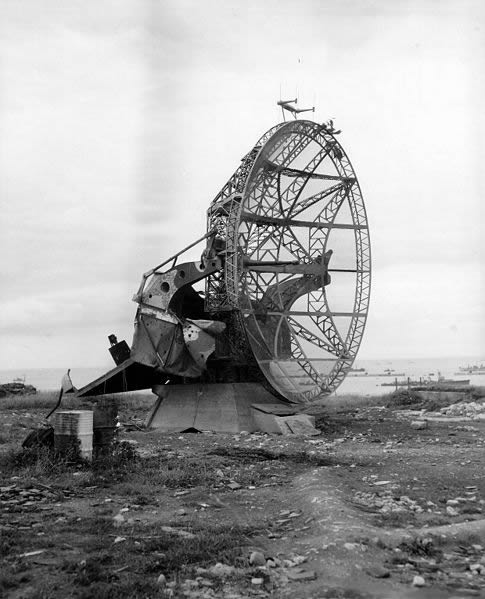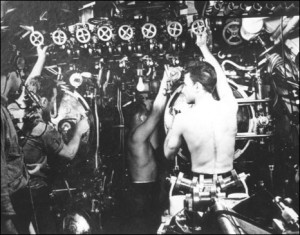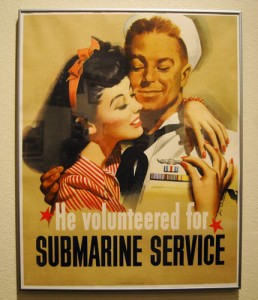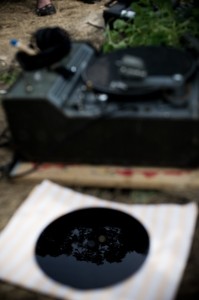Getting to Know the PRESTO – #4 – Down Periscope: PRESTO goes underwater to detect submarines
 We’ve always felt that the PRESTOs seem like military gear. Whether it’s their army green casings, their utilitarian bulk or their striking resemblance to the machines you see people frantically shouting distress calls and orders into during epic battles in movies about WWII, they have always seemed to us to be battle-ready.
We’ve always felt that the PRESTOs seem like military gear. Whether it’s their army green casings, their utilitarian bulk or their striking resemblance to the machines you see people frantically shouting distress calls and orders into during epic battles in movies about WWII, they have always seemed to us to be battle-ready.
We’re only doing battle with the sounds of sirens and some light weather concerns when we take our PRESTOs out these days, and (knock wood) we’re yet to have to send out a serious S.O.S. from a shoot, but during WWII, the company’s technology really was employed for missions of a life-or-death nature.

Can you hear me now?
In the early 40s PRESTO landed defense contracts to develop and manufacture military technology. Their expertise in crafting durable and portable sound equipment made PRESTO uniquely qualified to build radar rigs and navigation gear for the U.S. Navy. And their proximity to the New York harbor made them ideal for the job of installing submarine-detecting sonar rigs to protect the city’s substantial naval reserves.

PRESTO wins the pennant
Their contributions to the war effort did not go unnoticed. PRESTO was awarded the prestigious Army-Navy “E” Award, an honor presented to a company during World War II for excellence in production of war equipment. PRESTO’s plant got a pennant to hang, and each and every one of the employees in the plant at the time the award was earned was given an emblem. Then it was time to get back to the music.





